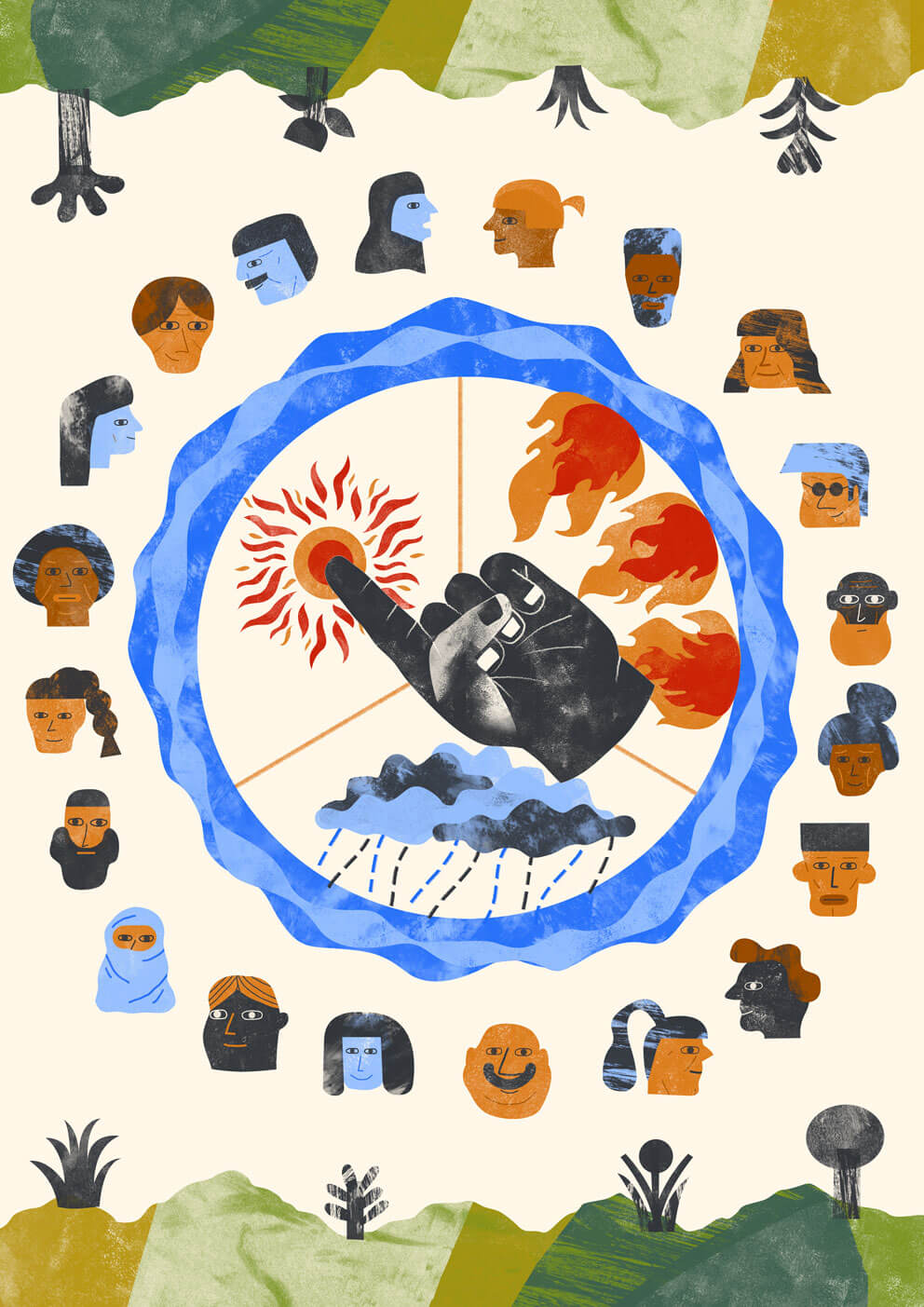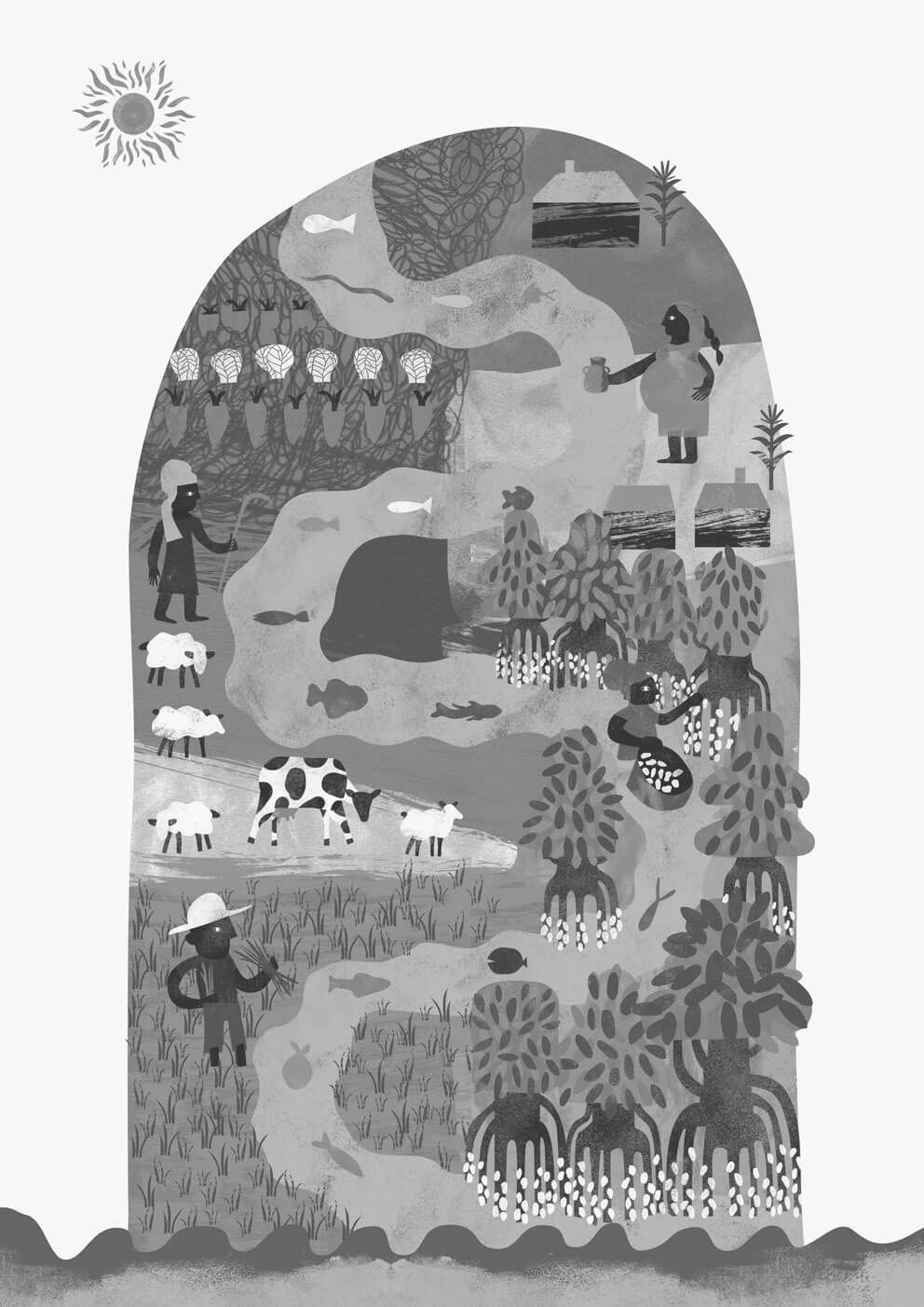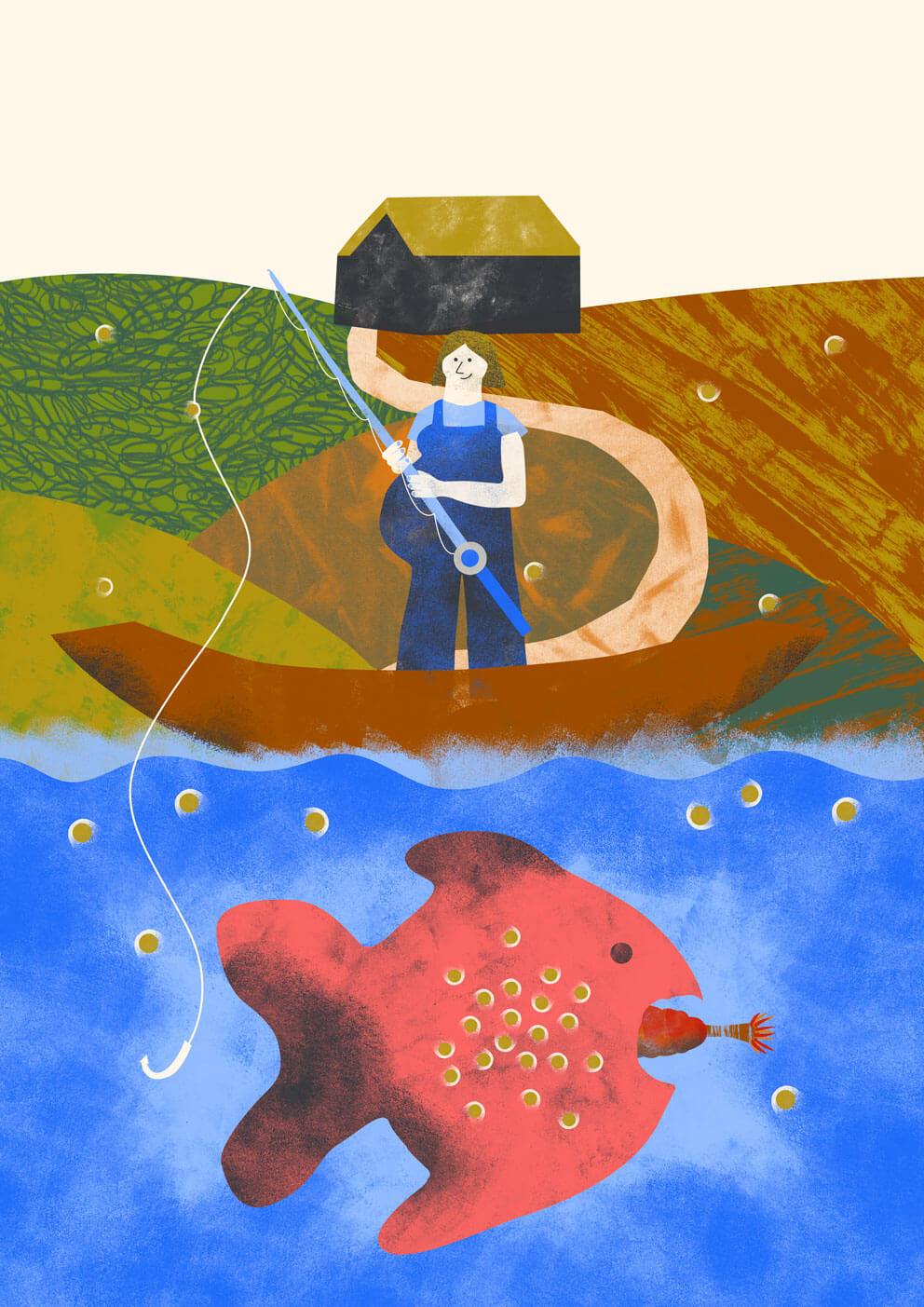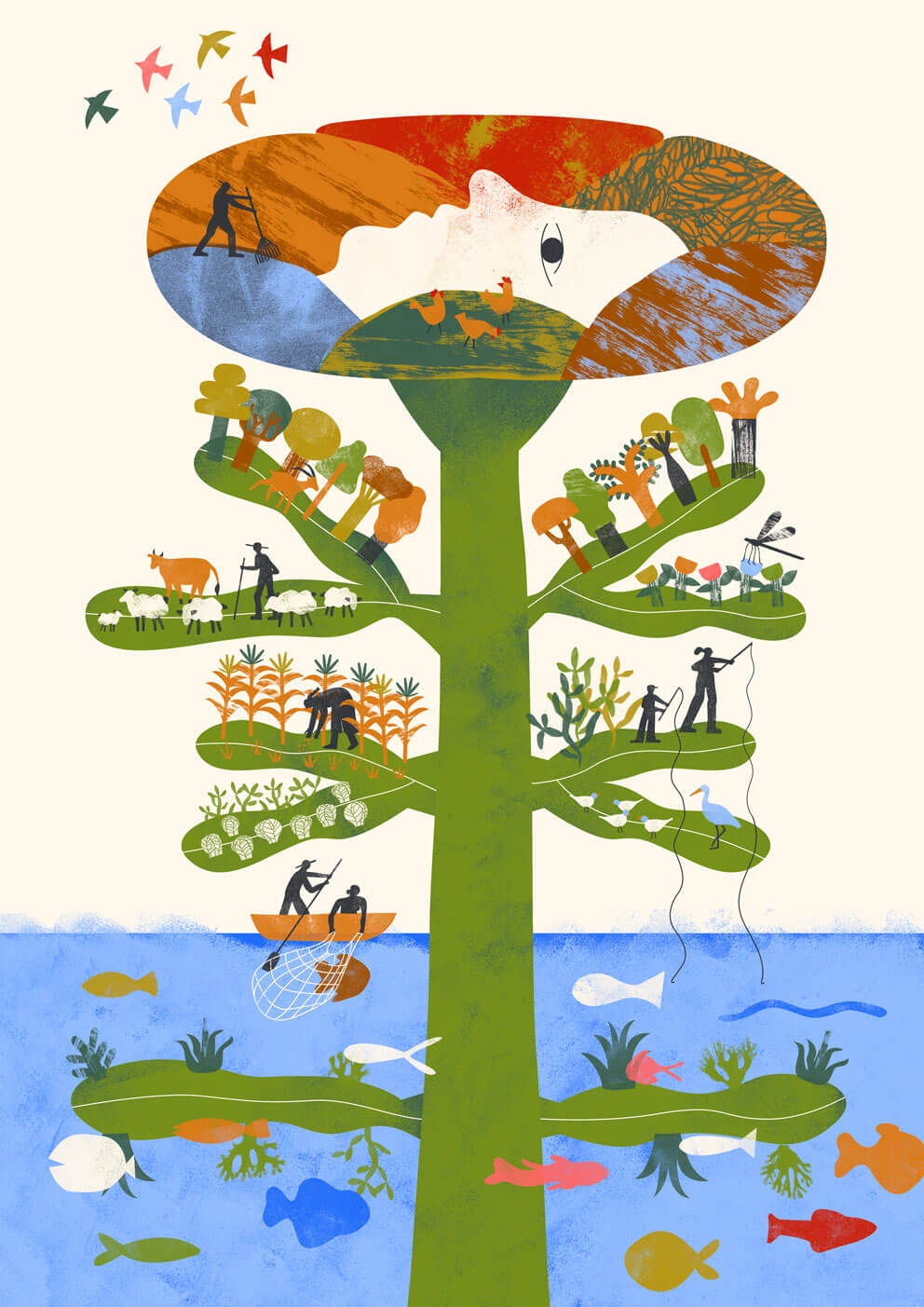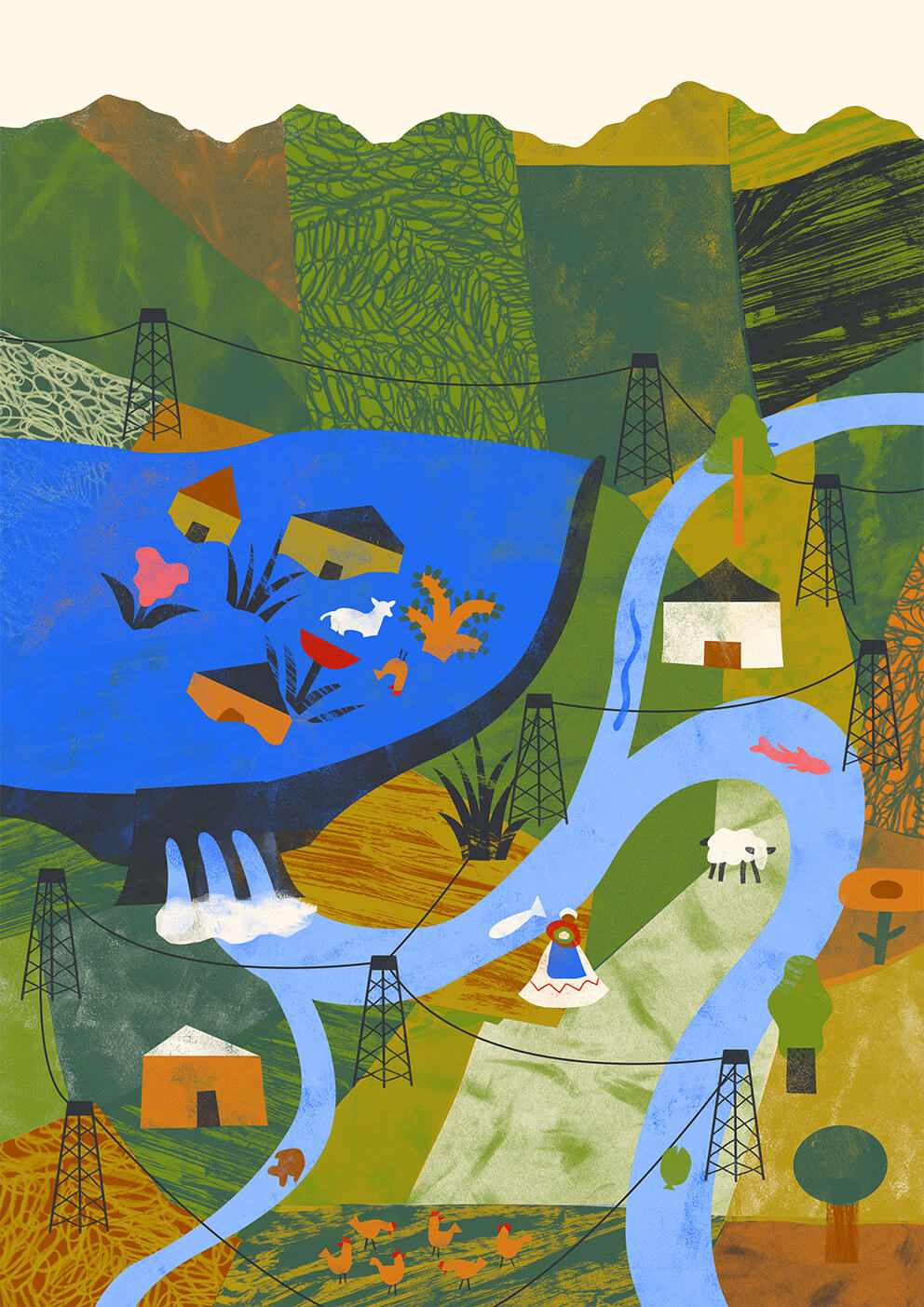GAMBIA: A LAND OF SALT
|
Many coastal areas of the Earth are experiencing water and soil salinization. This process is due to the rising sea levels associated with climate change, the decrease in river flow caused by reduced rainfall and dams, and the overexploitation of aquifers by intensive agriculture.
Soil salinization reduces crop yields and threatens food security. Additionally, in ecosystems such as rivers and lakes, the excess salt affects biodiversity, as many species of plants, aquatic insects, amphibians, and freshwater fish cannot tolerate saltwater.
Salinization disproportionately affects women. In Africa, the mangroves of The Gambia River are disappearing due to the effect of hypersalinity, and with them, the oyster breeding grounds are vanishing, one of the main local sources of sustenance collected by women. Also, in The Gambia, the salinization of rice fields is forcing women to walk long distances to find areas of freshwater where they can cultivate rice. Moreover, in Bangladesh, pregnant women are suffering from preeclampsia due to the consumption of water with high salt content, a severe condition that causes high blood pressure during pregnancy and postpartum. |

